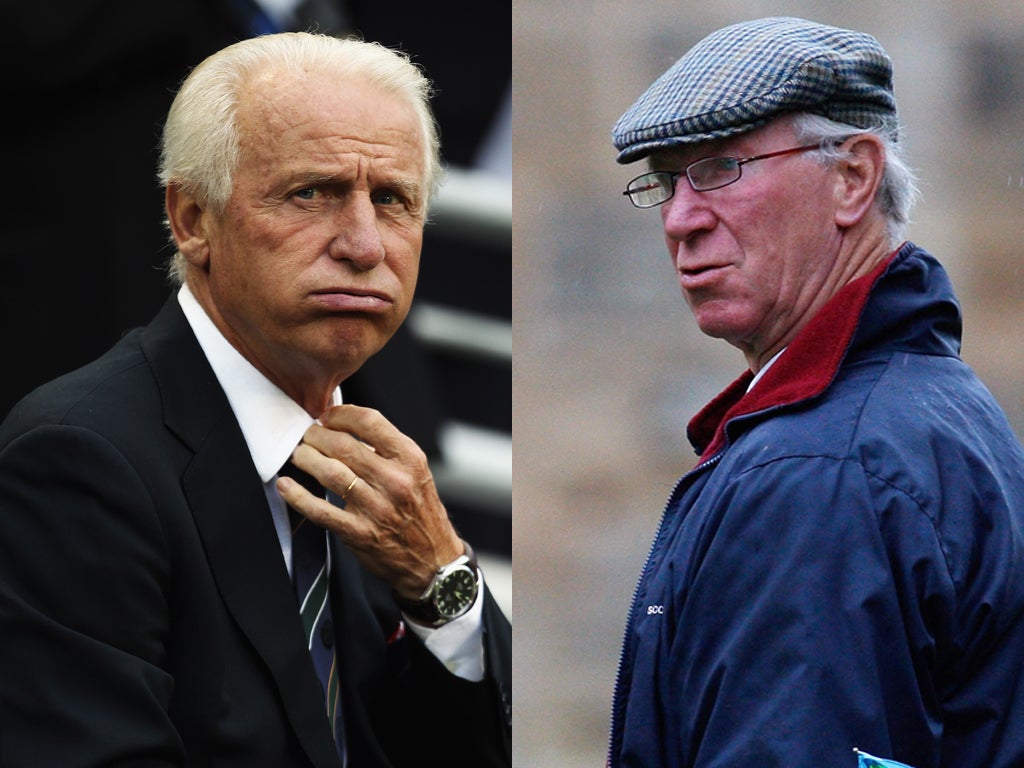Ireland back to Jack under Trapattoni
Italian manager's side out of shell after three years evolving

Giovanni Trapattoni struggled to keep his emotions in check until finally, in the press room of Tallinn's Le Coq Arena, he allowed himself to crack a smile. He started to laugh about the future, to get quite personable. That might have been down to the joyous, open nature of Ireland's 4-0 over Estonia. Or it might have been a bit more pointed.
Over the past few months the Republic's manager has started a public game of brinkmanship with his employers. He's dropped hints about wanting a new contract, but also suggested he's been sought elsewhere. The Football Association of Ireland, by contrast, have attempted to evade the matter until after this qualification series. And one of the main reasons for that, according to those within the FAI, is because they know Trapattoni's cautious style isn't loved. It's only justified by end results. And, for an association struggling to pay off a new stadium, it's a worry when many fans cite that approach as a reason for staying away from the previously packed, old Lansdowne Road.
With that manager having all but delivered Ireland to a first tournament in 10 years, that attitude may seem presumptuous for a population who had not any success until the late 80s when Jack Charlton took over. Trapattoni is nowhere near as loved as Charlton. The 1966 World Cup winner is widely cherished. The Italian is relatively respected. Given the similarities between the two men, that may seem odd: both are bullish pragmatists and both have now delivered Ireland to respectability after long periods in the international wilderness.
But there are deeper differences. Charlton had the benefit of being the ground-breaker. He arrived at an opportune time when the growing quality of Ireland's players was in stark contrast to the team's dismal history and the country's poor economic outlook in 1986. Charlton lifted it all (including, some complained, the ball off the grass). And, moreover, he immersed himself in society.
Much like Fabio Capello, Trapattoni hasn't done that. Indeed, he's often an absentee boss. An Irish public who are much more football-savvy than in 1986 never see the Italian beyond diary appointments like squad announcements and actual matches.
He struggles with the language and never goes to watch his players in person. In fact, he's publicly talked them down. Trapattoni has inferred – and often outright declared – that the reason Ireland play such austere football is because he doesn't trust the players to keep possession.
And that is the main reason for the lack of affection. Trapattoni's tenure has been characterised by the most fractious debate in Irish football since Charlton told a player of Liam Brady's class to just lump it forward.
To some, the Italian is merely doing what he must with a moderate group of players. To others, he plays an unnecessarily ascetic style of football at a time when the international game has never been so open to smaller countries. Whereas Slovenia were brave enough to knock out Russia for 2010 and Greece bullish enough to actually win Euro 2004, Trapattoni seems to act as if international football is still the closed-off, Maradona-defined shop of the mid-80s.
And, while Charlton banished most arguments by starting a long period of success, Trapattoni has appeared to do the opposite.
When Ireland have led against lesser sides such as Macedonia and Armenia, for example, Trapattoni has sought to protect what he had rather than press home and secure the win. More often than not, it created unnecessary danger and doubt.
But that is why Friday may mark a watershed: in terms of both Trapattoni's approach and public affection.
At 1-0 up and with an extra man after Estonian defender Andrei Stepanov had been sent off, Ireland could have sat tight. Instead, in a move untypical of Trapattoni's time so far, they went for the jugular.
It may not have been swashbuckling but it did represent a sweeping new level of football. And, to the press, Trapattoni insisted that was the resultof three long years of evolution.
"At the moment I am confident about the team. Two years ago we were not ready. Tonight, we were."
In that same conference Trapattoni broke another custom. He referred to journalists by name and engaged with them individually. That may be part of a charm offensive as he seeks a new contract, but he scored some big points. Just beforehand, he shed a tear in front of Irish television cameras. If the reaction is anything to go by, the country is starting to be seduced. Ahead of Ireland's last European Championships – and Charlton's first qualification in 1988 – only 50 people initially turned up at camp to see them off. Many, many more will likely do so ahead of their next.
Join our commenting forum
Join thought-provoking conversations, follow other Independent readers and see their replies
Comments
Bookmark popover
Removed from bookmarks